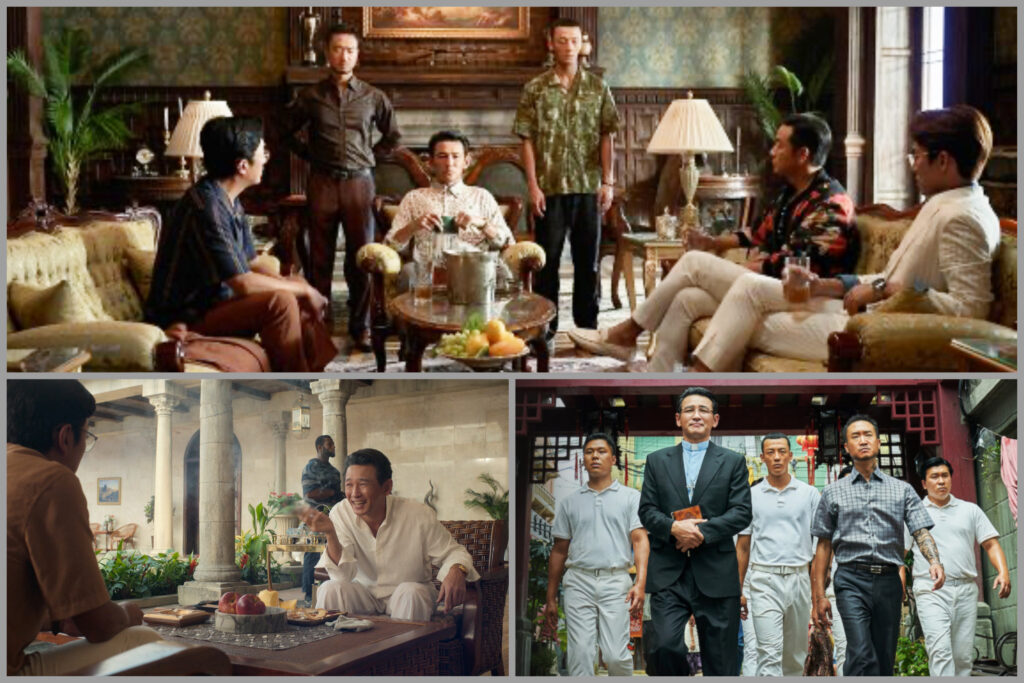
It has been confirmed that Cho Bong-haeng, the real person of Jeon Yo-hwan, the “drug king” in Netflix’s popular drama “Suri-nam,” died while serving his sentence in Korea in 2016.
Until now, Cho was believed to have returned to Suriname after completing his service, but this is the first time it has been confirmed that he died while serving his sentence in Korea.
Cho is a real person of Jeon Yo-hwan, a pastor character played by actor Hwang Jung-min in the play.Cho died at the Gwangju University Hospital on April 19, 2016. He was 64 years old at the time.
The cause of death on the death certificate is heart failure and hypertension.While serving time at Haenam Prison in Jeollanam-do, Cho was sentenced to suspension of execution due to worsening chronic diseases such as high blood pressure.
Cho, who was released five years after being imprisoned for the measure, reportedly died due to worsening conditions while being treated at a university hospital.
Director Yoon Jong-bin, who directed Surinam, said about Cho’s whereabouts, “The National Intelligence Service and the prosecution said they could not inform him.”
“True story” during the MB government…After more than two years of tracking by the NIS and the prosecution, Cho was called the “drug king” for running a large-scale drug trafficking organization in Surinam, South America, from the late 1990s to the early 2000s.
The National Intelligence Service and the U.S. Drug Enforcement Agency were arrested at Sao Paulo International Airport in Brazil in July 2009.Cho worked as a ship refrigerator in the 1980s and lived in Surinam for about eight years.
Then, when he was wanted for fraud in 1994, he fled to Suriname and obtained Suriname nationality in 1995. Cho, who set up a fish processing plant in Surinam, will reach out to the drug business with Cali Cartel, the largest drug cartel organization in South America.
In the process, Cho used a trick to trick Koreans, including housewives and college students, into transporting drugs by deceiving them as jewelry.As his drug business grew rapidly, he was placed on Interpol’s wanted list in 2005.
Cho’s arrest took two full years until July 2009 after planning his arrest in October 2007, and was sent to Korea in 2011, two years after his arrest, and sentenced to 10 years in prison and about $100,000 in fines for fraud and drug smuggling.
He was sentenced to a relatively light sentence of 10 years in prison because, unlike the drama, he was only charged with handling 48.5 kilograms of cocaine. The fact that drugs were not distributed in Korea also helped lower the sentence.
Within three days of its release, it ranked eighth in the world in the popularity of Netflix dramas, and rose to third place on the 14th.
Diplomatic conflicts also erupted as “Suri Nam” gained popularity on Netflix. The Suriname government said its nationality was damaged by the story of describing itself as a “drug state,” and said it would review legal action against the production company and officially protest against the South Korean government.
The Ministry of Foreign Affairs intervened in the arbitration by not including the name of the country in the English title (Narco Saints in the English title), but it was not enough.
In response, the Korean Embassy urged Korean residents to be safe. The Embassy of the Republic of Korea in Venezuela said in a safety notice for the Korean community in Suriname, “I think Koreans living in Suriname will be in a lot of trouble in the aftermath of the drama ‘Narcos Saints,’ adding, “We are most concerned about the safety of Koreans, so we will do our best for your safety.
“First of all, please pay attention to your own safety.”South Korea and Suriname established diplomatic ties in 1975, and now the Korean Embassy in Venezuela serves as Suriname.
JENNIFER KIM
ASIA JOURNAL



